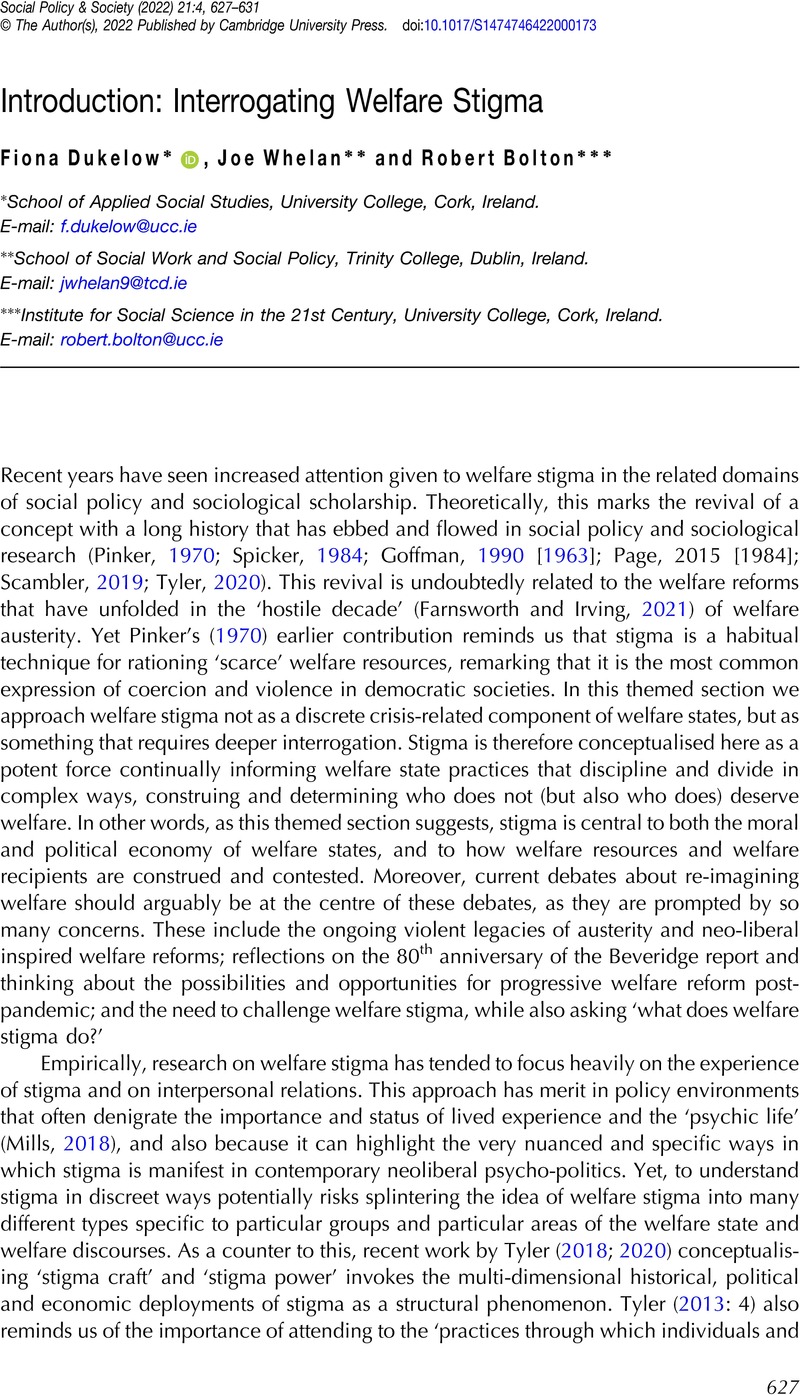Crossref Citations
This article has been cited by the following publications. This list is generated based on data provided by Crossref.
Chau, Ruby C. M.
and
D’Angelo, Alessio
2022.
Editors’ Notes: Towards the Centenary of the ‘Beveridge Report’: A Debate on the Welfare State for the Next Twenty Years.
Social Policy and Society,
Vol. 21,
Issue. 3,
p.
333.
Habibullah, Habibullah
Yuda, Tauchid Komara
Setiawan, Hari Harjanto
and
Susantyo, Badrun
2024.
Moving beyond stereotype: A qualitative study of long‐standing recipients of the Indonesian conditional cash transfers (CCT/PKH).
Social Policy & Administration,
Vol. 58,
Issue. 1,
p.
108.
Yuda, Tauchid Komara
Habibullah, Habibullah
and
Nurhadi, Nurhadi
2024.
Stigma Paradox and Welfare Rights Claiming.
Forum for Development Studies,
Vol. 51,
Issue. 2,
p.
289.
Sebrechts, Melissa
2024.
Towards an empirically robust theory of stigma resistance in the ‘new’ sociology of stigma: Everyday resistance in sheltered workshops.
The Sociological Review,
Vol. 72,
Issue. 5,
p.
1117.
Lundberg, Kjetil Grimastad
and
Syltevik, Liv Johanne
2024.
Welfare stigma in a social democratic welfare regime during a decade of national public debate: production, contestation and continuities.
European Societies,
Vol. 26,
Issue. 5,
p.
1572.
Croitoru, Alin
Bobic, Viorica
Corman, Sorina
Pavelescu, Amalia
Popa, Radu-Ioan
and
Rădăcină, Oana-Elena
2025.
Romanians’ fears linked to the social work system: Too many people take advantage without needing help.
International Social Work,



